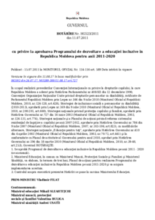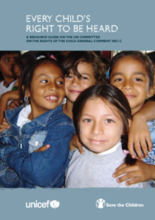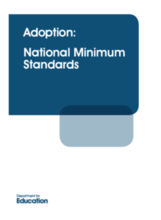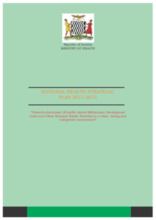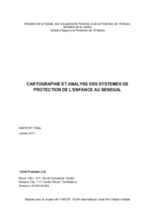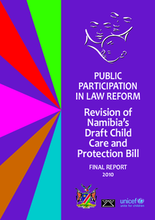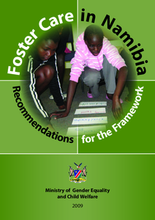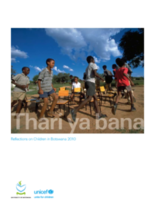Displaying 1441 - 1450 of 1796
În scopul realizării prevederilor Convenţiei Internaţionale cu privire la drepturile copilului, la care Republica Moldova a aderat prin Hotărîrea Parlamentului nr.408-XII din 12 decembrie 1990, Convenţiei Organizaţiei Naţiunilor Unite privind drep
This toolkit presents a compendium of research on how Albertans think about the issues of early childhood development, and how to increase public support for policies and programs that support healthy child development.
This resource guide is based on and elaborates the UN Committee on the Rights of the Child General Comment No. 12, ‘The Right of the Child to be Heard.’ The aim of this handbook is to try to make easier the task of governments in moving that agenda forward.
This document contains the UK National Minimum Standards (NMS) applicable to the provision of adoption services.
This document is the National Health Strategic Plan 2011 to 2015 (NHSP 2011-15) for Zambia.
Cette cartographie et analyse du système de protection de l’enfance au Sénégal fait partie d’une initiative régionale de l’Afrique de l’Ouest et centrale soutenue de manière technique et matérielle par un groupe régional de référence composé de Plan International, Save the Children Suède, Save the Children Finlande et l’UNICEF.
This manual offers a training session targeted at policy makers, professionals and paraprofessionals who are already working on programs to support children without appropriate care, or who may begin work in this area. This workshop focuses on children in developing contexts, who require support within their families and those who need an alternative care placement.
This document provides a summary of the various forms of consultation undertaken during the revision of the Child Care and Protection Bill. It provides a basis for future law reform processes and presents an excellent example of how to include children and the public in the law-making process.
Report assessing the existing framework for foster care in light of the realities of Namibian foster care in practice. Based on information about foster care frameworks and guardianship legislation in other countries, recommendations are provided for new approaches to foster care and foster care grants which could be incorporated into Namibia’s forthcoming Child Care and Protection Act (CCPA).
The papers presented here bring together research and reflections on children’s issues in Botswana with a particular section dedicated to child protection and the needs of children without parental care

